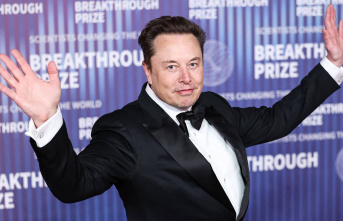Industry President Siegfried Russwurm does not yet see the danger of a gas shortage in Germany averted. "There is no reason to give the all-clear," Russwurm told the German Press Agency.
"Nobody can rule out that we are facing a hard winter. It is therefore essential that companies, citizens and the public sector save energy - whenever and wherever possible."
The President of the Federation of German Industries said: "It has always been clear that there are two major imponderables: the weather and how much energy we have to export to our European neighbours, mainly France at the moment. The ultimate stress test is not the theory, but the reality of this winter and the coming winter. We have to get through this winter, then fill up the stores again and get through the next winter too. The matter is not settled yet."
A gas shortage would be more than just uncomfortable, Russwurm said. "Compulsory shutdowns for companies would be highly damaging. That means everyone's efforts to save must absolutely continue." The industry has saved gas, on the one hand through efficiency efforts and the replacement of gas with oil, for example. "On the other hand, there was a significant drop in production. That saves gas, but it's the last thing that the industrial nation of Germany needs as a perspective."
Gas storage and energy transition
For the winter of 2023/2024, the gas storage facilities should be as full as they were in November of this year. "The actual stress test is still to come. Because we have to get supplies from sources other than Russia. All planned LNG terminals have to be connected to the grid." With the first new terminal in Wilhelmshaven, the danger of a gas shortage is far from over. "For a secure energy supply, we have to find other international partners who are willing to supply us with sufficient gas. And finally, we have to stabilize domestic gas production."
Russwurm also called for more speed in the energy transition. "Above all, politics must create appropriate framework conditions for the necessary investments. In Germany, the problem with the energy transition is not the will, but the implementation - and a variety of local sensitivities. Necessary political and regulatory changes take too long. The expansion must be the previous one far exceed the pace."
Chancellor Olaf Scholz described the "very pleasingly quick" realization of the first LNG terminal in Wilhelmshaven as "a new pace in Germany", said Russwurm. "Indeed, we need that - also for the expansion of grids and renewable energies. The high level of ambition of the federal government alone does not build a new wind turbine. Decarbonization will only succeed if everything runs like clockwork from now on."








